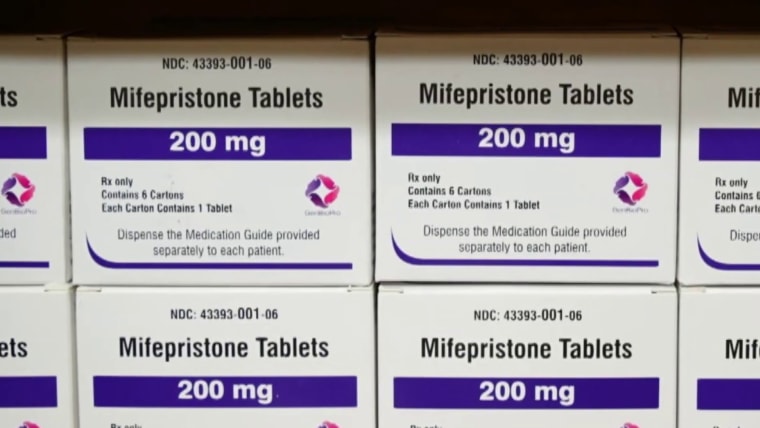A good and expected result, though the door for future challenges remains open.
A unanimous Supreme Court ruled Thursday that the anti-abortion doctor plaintiffs in a major mifepristone case lack standing to reimpose restrictions on the drug.
The case presented a major risk to the drug’s accessibility, as adding back restrictions that the Food and Drug Administration had previously lifted would apply nationwide, even in blue states with robust abortion rights.
The plaintiffs in the case — represented at oral argument by lawyer Erin Hawley, wife of Sen. Josh Hawley (R-MO) — contorted themselves to try to find some injury that the lifting of various restrictions on mifepristone caused them. They crafted hypotheticals about floods of suffering women being sent to their emergency rooms when they happened to be the only doctor on call; they complained that they had to spend money to drum up opposition to the FDA’s actions. But none of that, Kavanaugh wrote, passed muster.
“Federal courts do not operate as an open forum for citizens ‘to press general complaints about the way in which government goes about its business,’” he said.
Cutting through the plaintiffs’ many speculative theories of how they might, maybe, one day be harmed by the drug, Kavanaugh put it plainly: “Under Article III of the Constitution, a plaintiff’s desire to make a drug less available for others does not establish standing to sue.”
That idea — that the anti-abortion doctors’ desire for other doctors not to prescribe mifepristone and for patients not to take it simply does not give them grounds to sue — is both an obvious and basic facet of our legal system, and one that seemed to elude both U.S. District Judge Matthew Kacsmaryk and the 5th Circuit, both of whom granted the plaintiffs standing in their haste to restrict the abortion drug.
The Court also clearly couldn’t swallow the slippery slope of what granting standing on such tenuous grounds could mean. The floodgates would be opened to an unmanageable wave of litigation: Every doctor would suddenly get the right to sue the FDA for approving virtually any drug with side effects; others could file lawsuits whenever an official makes a change that could bring about new physical harms (lifting emissions regulations, starting a middle school football league, increasing speed limits, expanding gun rights, as Kavanaugh proposed in a series of hypotheticals).
“Firefighters could sue to object to relaxed building codes that increase fire risks,” he wrote. “Police officers could sue to challenge a government decision to legalize certain activities that are associated with increased crime. Teachers in border states could sue to challenge allegedly lax immigration policies that lead to overcrowded classrooms.”
See here for the previous update. This case was a turd from the beginning and should have been laughed out of court, but this is what happens when you have a wingnut partisan judge that extremist zealots can dial up at will and a wingnut partisan appeals court that makes its own laws. It’s nice that SCOTUS didn’t fall for this patent bullshit, but they don’t deserve any more credit than that, since it was their own patent bullshit in the Dobbs decision that led us here. And while this door may be closed, other challenges like the FDA’s decision to allow mifepristone to be prescribed online remain, and that’s before we consider the zombie menace of the Comstock Act. Celebrate the win, but don’t get complacent about it, there’s still a ton of work to do. Mother Jones, the Associated Press, Slate, Law Dork, the Trib, Daily Kos, and Kevin Drum have more.


The case was only bogus because they didn’t have standing; but they will find someone who does have standing and file again.